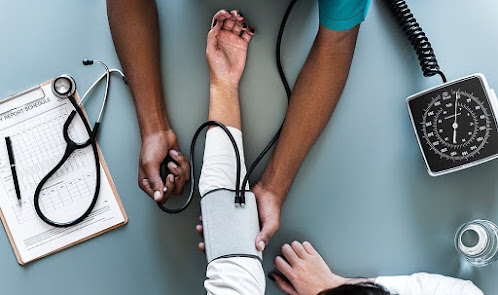Blood Pressure
About 1 in 3 adults in the U.S. has high blood pressure, but many don't realize it. High blood pressure is sometimes called a "silent killer," because it usually has no warning signs, yet it can lead to life-threatening conditions like heart attack or stroke. The good news is that high blood pressure, or hypertension, can often be prevented or treated. Early analisis and sederhana, healthy changes can keep high blood pressure from seriously damaging your health.
Normal blood flow delivers nutrients and oxygen to all parts of your bodi, including important organs like your heart, brain, and kidneys. Your beating heart helps to push blood through your vast network of blood vessels, both large and small. Your blood vessels, in turn, constantly adjust. They become narrower or wider to maintain your blood pressure and keep blood flowing at a healthy rate.

It's normal for your blood pressure to go up and down throughout each day. Blood pressure is affected by time of day, exercise, the foods you eat, stress, and other factors. Problems can arise, though, if your blood pressure stays too high for too long.
High blood pressure can make your heart work too hard and lose strength. The high force of blood flow can damage your blood vessels, making them weak, stiff, or narrower. Over time, hypertension can harm several important organs, including your heart, kidneys, brain, and eyes.
"Hypertension is a leading risk factor for death and disability worldwide," says Dr. Paul Whelton, an ahli in hypertension and kidney disease at Tulane University. "High blood pressure raises the risk of having a heart attack, heart failure, stroke, or kidney disease."
Anyone, even children, can develop high blood pressure. But the risk for hypertension rises with age. "Once people are in their 60s, about two-thirds of the population is affected by hypertension," Whelton says.
Excess weight or having a family history of high blood pressure also raises your risk for hypertension.
African Americans are especially likely to get hypertension. Compared to Caucasian or Hispanic American adults, African Americans tend to develop hypertension at a younger age and to have a higher blood pressure on average.
Because it usually has no symptoms, the only way to know for sure that you have hypertension is to have a blood pressure tes. This easy, painless tes involves placing an inflated cuff with a pressure gauge around your upper arm to squeeze the blood vessels. A health care provider may then use a stethoscope to listen to your pulse as air is released from the cuff, or an automatic piranti may measure the pressure


